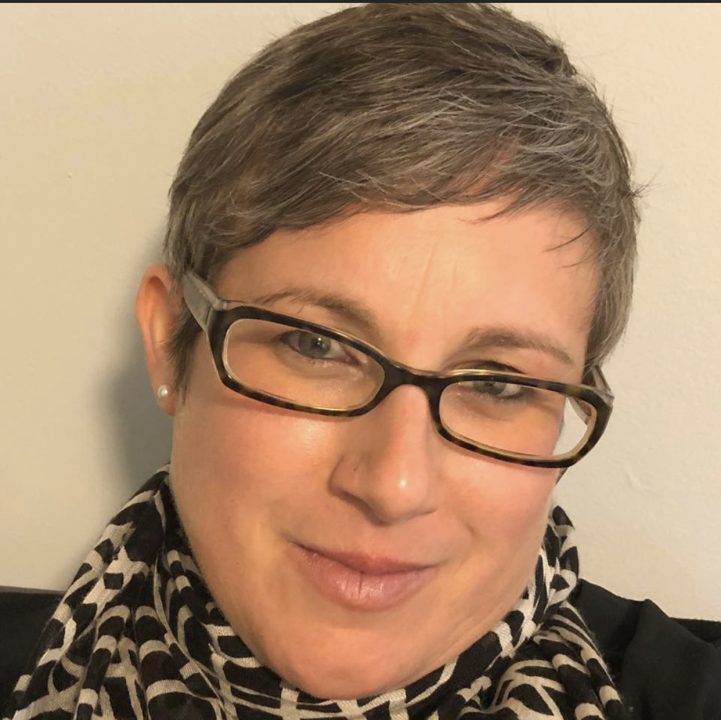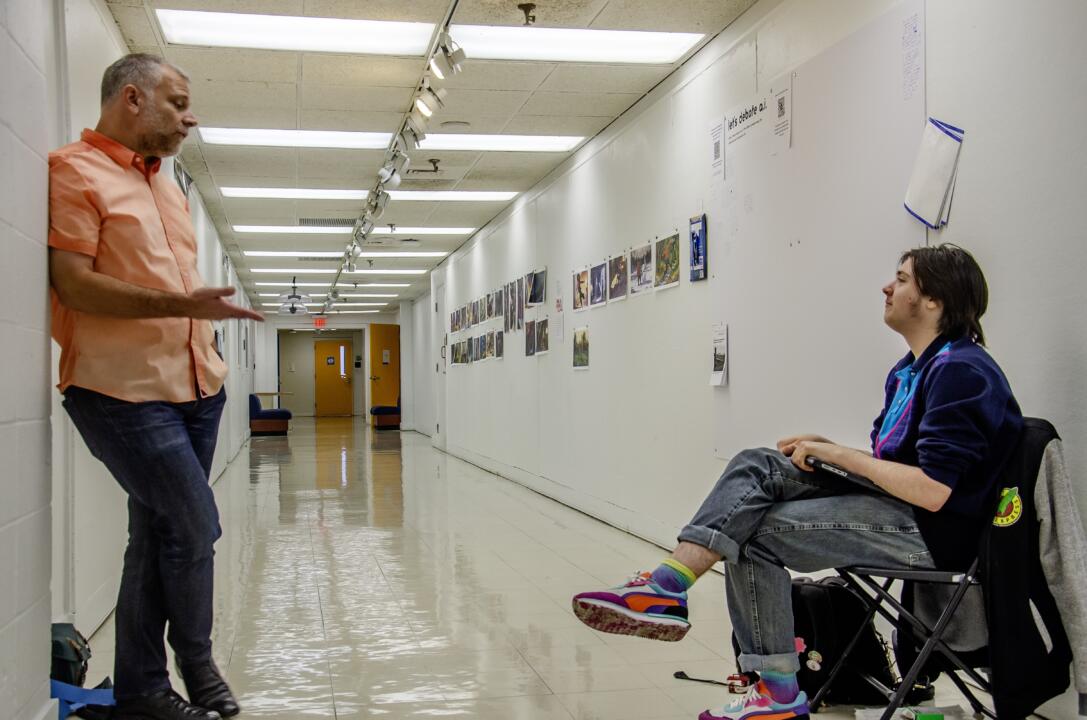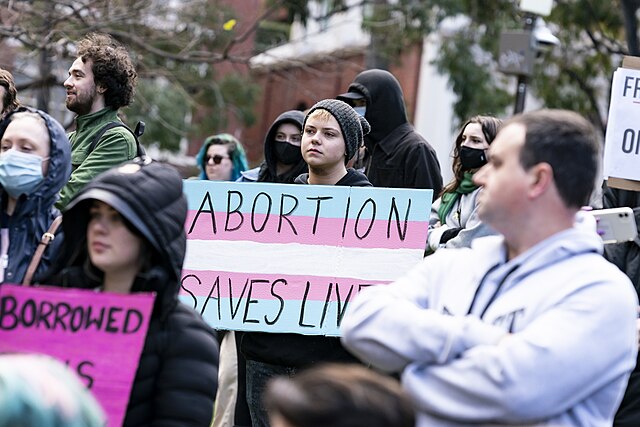The University of Maryland, Baltimore County’s Office of Equity and Inclusion added two new members to its proposed five-person team over the past two months, who plan to work to increase the office’s outreach and training efforts. Their efforts also aim to build the community’s trust in UMBC’s Title IX and anti-discrimination processes.
Mikhel Kushner, who was the first full-time professional director of the UMBC Women’s Center in 2000, joined the OEI in March as UMBC’s new Title IX coordinator, and B. Ever Hanna, who served as the policy director for End Rape on Campus, a national survivor advocacy organization, joined in late February as the Training and Case Manager.
Kushner and Hanna have been working alongside Ariana Arnold, the director of OEI, as the university transitioned to remote work. The office, which reports to Candace Dodson-Reed, the chief of staff and executive director of OEI, has been granted special permission to hire two Title IX investigators despite the university-wide hiring pause.
Arnold, Kushner and Hanna are currently working to process remaining Title IX cases that were filed earlier in the semester, which Kushner said has given the office a chance to evaluate what about the current process works and what may need updating.
The OEI staff members are also working to do more community outreach, which previously meant showing up in-person to different organizational and departmental meetings around campus, but now means showing up in video conferences.

Kushner, who is coming from a position as the executive director of Diversity and Inclusion and also as the Title IX coordinator at the University of Maryland, Baltimore, said that the office is currently thinking through how they can be more available when students, faculty and staff return to campus, noting that their office location — the ninth floor of the Administration building — may be an obstacle for people.
She hopes that this initial outreach will help students feel more comfortable with the office and wants students to know that “we’ll come to them. We’re not stagnant.”
The OEI, which handles complaints related to UMBC’s Title IX and anti-discrimination policies, launched an online reporting form in late February. This new form allows the option for anonymous reporting, a feature Kushner called a “valuable and important tool,” while also acknowledging the limits it places on the office’s ability to help a person in crisis.
That’s where resource sharing comes in. Though the OEI’s website is still under construction, Kushner said that the website will be used to more clearly share the work OEI does and the resources it provides, which she hopes will help students, faculty and staff gain a better understanding of the office’s purpose and the options available to those experiencing trauma. Hanna is hoping to add resources that are both culturally specific and that also reflect the UMBC community as it grows and changes.
The office’s outreach work will also be supported by comprehensive in-person training, provided by Hanna, who is responsible for creating a new training curriculum. As a part of this training, Hanna is also planning to work with faculty and staff to ensure not only that they know how to report instances of sexual harassment and sexual violence but also that that they have the language to understand gender identity.
Though UMBC has not yet decided what the fall semester will look like, Hanna is preparing for the possibility that UMBC will have to move training courses online and is working to offer courses that are “still interactive and informative and worth the time of the students, faculty and staff who are taking them,” they said.
In addition to the outreach and training efforts, Hanna and Kushner face another, less tangible challenge: building trust in the community.
Both Kushner and Hanna trace their start in work surrounding Title IX and anti-discrimination policy to their own years in college. Kushner served as the Crozier Center for Women’s student manager while she attended Kenyon College, and Hanna pushed their administration at Boston University to establish a rape crisis center in their senior year, resulting in BU’s Sexual Assault Response and Prevention Center.
They both remember being affected by the release of the 2011 Dear Colleague letter, which prompted them to start staying up-to-date on Title IX news. Kushner was in the Caribbean, fresh out of law school and working in student conduct for a medical school. The school did not have a Title IX coordinator, since it did not have an athletics program, but she began to request one. Soon enough, she became the Title IX coordinator.
“ … it was almost as if I was being primed to become a Title IX coordinator without us even knowing that Title IX coordinators would be doing the work that they’re doing now,” Kushner said.
Hanna had much of the same experience. While in law school, a second Dear Colleague letter came out, this time about discriminating facing transgender students. Hanna took that letter to the Title IX office and used it to advocate for the support they needed. After law school, Hanna worked providing legal services to young people in foster care and later moved to End Rape on Campus after realizing the career path they were following.
“I had this experience … that a lot of people told me I would have when I was young where I looked back at my experiences and the things I was interested in, and I was kind of like, ‘Oh, I’ve always done this work, but I never realized that this is what I was doing,’” Hanna said.
Hanna and Kushner hope to make the OEI an office where students, faculty and staff feel as if they have been and can be heard, regardless of the outcome of a case.
“Our office’s work is in large part neutral work,” Kushner later stated in an email. “I hold space for everyone who comes to me, even if what they’re saying sounds like the exact opposite of what the other person in the same situation is saying to me. It’s important that I’m hearing what each person has to say, and that they trust me to be hearing their perspective, their truth, their version of events.”
Hanna emphasized a “trauma-informed” approach to the office’s work, noting that they should be able to meet with students, faculty and staff and be kind and supportive so that the process of reporting does not make a person’s trauma worse.
“We want to have a process that … [is] fair and equitable to everyone but also makes sure that everyone who’s participating feels like they are getting support and resources from our office and that we feel like a place that’s approachable and that can be trusted,” Hanna said. “It’s a really tricky line to walk, but I’m hopeful that we can do it.”
Correction: A previous version of this article incorrectly stated that Mikhel Kushner founded the Women’s Center. Rather, she was the first full-time professional director of the Women’s Center.




